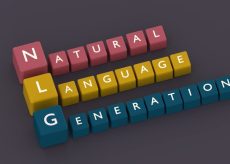DP-100: A-Z Machine Learning using Azure Machine Learning


Price: 99.99$
This course will help you and your team to build skills required to pass the most in demand and challenging, Azure DP-100 Certification exam. It will earn you one of the most in-demand certificate of Microsoft Certified: Azure Data Scientist Associate. DP-100 is designed for Data Scientists. This exam tests your knowledge of Data Science and Machine learning to implement machine learning models on Azure. So you must know right from Machine Learning fundamentals, Python, planning and creating suitable environments in Azure, creating machine learning models as well as deploying them in production. Why should you go for DP-100 Certification?One of the very few certifications in the field of Data Science and Machine Learning. You can successfully demonstrate your knowledge and abilities in the field of Data Science and Machine Learning. You will improve your job prospects substantially in the field of Data Science and Machine Learning. Key points about this course Covers the most current syllabus as on May, 2021.100% syllabus of DP-100 Exam is covered. Very detailed and comprehensive coverage with more than 200 lectures and 25 Hours of content Crash courses on Python and Azure Fundamentals for those who are new to the world of Data Science Machine Learning is one of the hottest and top paying skills. It’s also one of the most interesting field to work on. In this course of Machine Learning using Azure Machine Learning, we will make it even more exciting and fun to learn, create and deploy machine learning models using Azure Machine Learning Service as well as the Azure Machine Learning Studio. We will go through every concept in depth. This course not only teaches basic but also the advance techniques of Data processing, Feature Selection and Parameter Tuning which an experienced and seasoned Data Science expert typically deploys. Armed with these techniques, in a very short time, you will be able to match the results that an experienced data scientist can achieve. This course will help you prepare for the entry to this hot career path of Machine Learning as well as the Azure DP-100: Azure Data Scientist Associate exam.— Exam Syllabus for DP-100 Exam —1. Set up an Azure Machine Learning Workspace (30-35%)Create an Azure Machine Learning workspace Create an Azure Machine Learning workspace Configure workspace settings Manage a workspace by using Azure Machine Learning studio Manage data objects in an Azure Machine Learning workspace Register and maintain datastores Create and manage datasets Manage experiment compute contexts Create a compute instance Determine appropriate compute specifications for a training workload Create compute targets for experiments and training Run Experiments and Train Models (25-30%)Create models by using Azure Machine Learning Designer Create a training pipeline by using Azure Machine Learning designer Ingest data in a designer pipeline Use designer modules to define a pipeline data flow Use custom code modules in designer Run training scripts in an Azure Machine Learning workspace Create and run an experiment by using the Azure Machine Learning SDKConfigure run settings for a script Consume data from a dataset in an experiment by using the Azure Machine Learning SDKGenerate metrics from an experiment run Log metrics from an experiment run Retrieve and view experiment outputs Use logs to troubleshoot experiment run errors Automate the model training process Create a pipeline by using the SDKPass data between steps in a pipeline Run a pipeline Monitor pipeline runs Optimize and Manage Models (20-25%)Use Automated ML to create optimal models Use the Automated ML interface in Azure Machine Learning studio Use Automated ML from the Azure Machine Learning SDKSelect pre-processing options Determine algorithms to be searched Define a primary metric Get data for an Automated ML run Retrieve the best model Use Hyperdrive to tune hyperparameters Select a sampling method Define the search space Define the primary metric Define early termination options Find the model that has optimal hyperparameter values Use model explainers to interpret models Select a model interpreter Generate feature importance data Manage models Register a trained model Monitor model usage Monitor data drift Deploy and Consume Models (20-25%) Create production compute targets Consider security for deployed services Evaluate compute options for deployment Deploy a model as a service Configure deployment settings Consume a deployed service Troubleshoot deployment container issues Create a pipeline for batch inferencing Publish a batch inferencing pipeline Run a batch inferencing pipeline and obtain outputs Publish a designer pipeline as a web service Create a target compute resource Configure an Inference pipeline Consume a deployed endpoint Some feedback from previous students, The instructor explained every concept smoothly and clearly. I’m an acountant without tech background nor excellent statistical knowledge. I do really appreciate these helpful on-hand labs and lectures. Passed the DP-100 in Dec 2020. This course really help. Cleared DP-100 today with the help of this course. I would say this is the one of the best course to get in depth knowledge about Azure machine learning and clear the DP-100 with ease. Thank you Jitesh and team for this wonderful tutorial which helped me clear the certification. The instructor explained math concept clearly. These math concepts are necessary as fundation of machine learning, and also are very helpful for studying DP-100 exam concepts. Passed DP-100. I am committed to and invested in your success. I have always provided answers to all the questions and not a single question remains unanswered for more than a few days. The course is also regularly updated with newer features. Learning data science and then further deploying Machine Learning Models have been difficult in the past. To make it easier, I have explained the concepts using very simple and day-to-day examples. Azure ML is Microsoft’s way of democratizing Machine Learning. We will use this revolutionary tool to implement our models. Once learnt, you will be able to create and deploy machine learning models in less than an hour using Azure Machine Learning Studio. Azure Machine Learning Studio is a great tool to learn to build advance models without writing a single line of code using simple drag and drop functionality. Azure Machine Learning (Azure ML) is considered as a game changer in the domain of Data Science and Machine Learning. This course has been designed keeping in mind entry level Data Scientists or no background in programming. This course will also help the data scientists to learn the Azure ML tool. You can skip some of the initial lectures or run them at 2x speed, if you are already familiar with the concepts or basics of Machine Learning. The course is very hands on and you will be able to develop your own advance models while learning, Advance Data Processing methods Statistical Analysis of the data using Azure Machine Learning Modules MICE or Multiple Imputation By Chained Equation SMOTE or Synthetic Minority Oversampling Technique PCA; Principal Component Analysis Two class and multiclass classifications Logistic Regression Decision Trees Linear Regression Support Vector Machine (SVM) Understanding how to evaluate and score models Detailed Explanation of input parameters to the models How to choose the best model using Hyperparameter Tuning Deploy your models as a webservice using Azure Machine Learning Studio Cluster Analysis K-Means Clustering Feature selection using Filter-based as well as Fisher LDA of Azure ML Studio Recommendation system using one of the most powerful recommender of Azure Machine Learning All the slides and reference material for offline reading You will learn and master, all of the above even if you do not have any prior knowledge of programming. This course is a complete Machine Learning course with basics covered. We will not only build the models but also explain various parameters of all those models and where we can apply them. We would also look at Steps for building an ML model. Supervised and Unsupervised learning Understanding the data and pre-processing Different model types The Azure ML Cheat Sheet. How to use Classification and Regression What is clustering or cluster analysis KDNuggets one of the leading forums on Data Science calls Azure Machine Learning as the next big thing in Machine Learning. It further goes on to say, people without data science background can also build data models through drag-and-drop gestures and simple data flow diagrams. Azure Machine Learning’s library has many pre-built models that you can re-use as well as deploy them. So, hit the enroll button and I will see you inside the course. Best-






